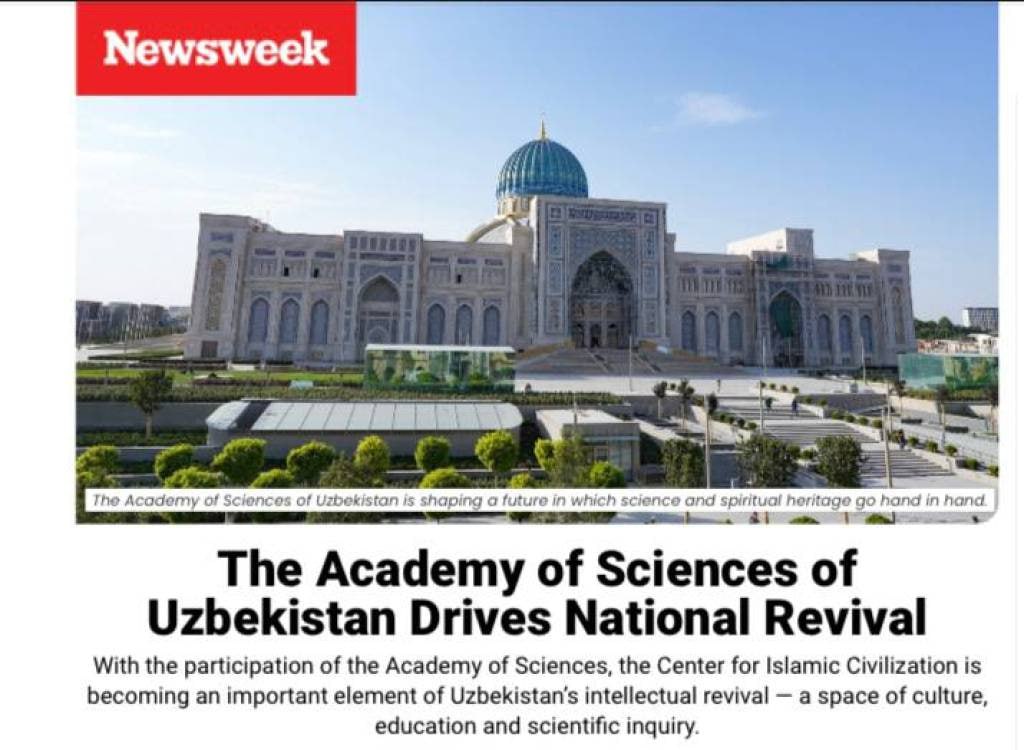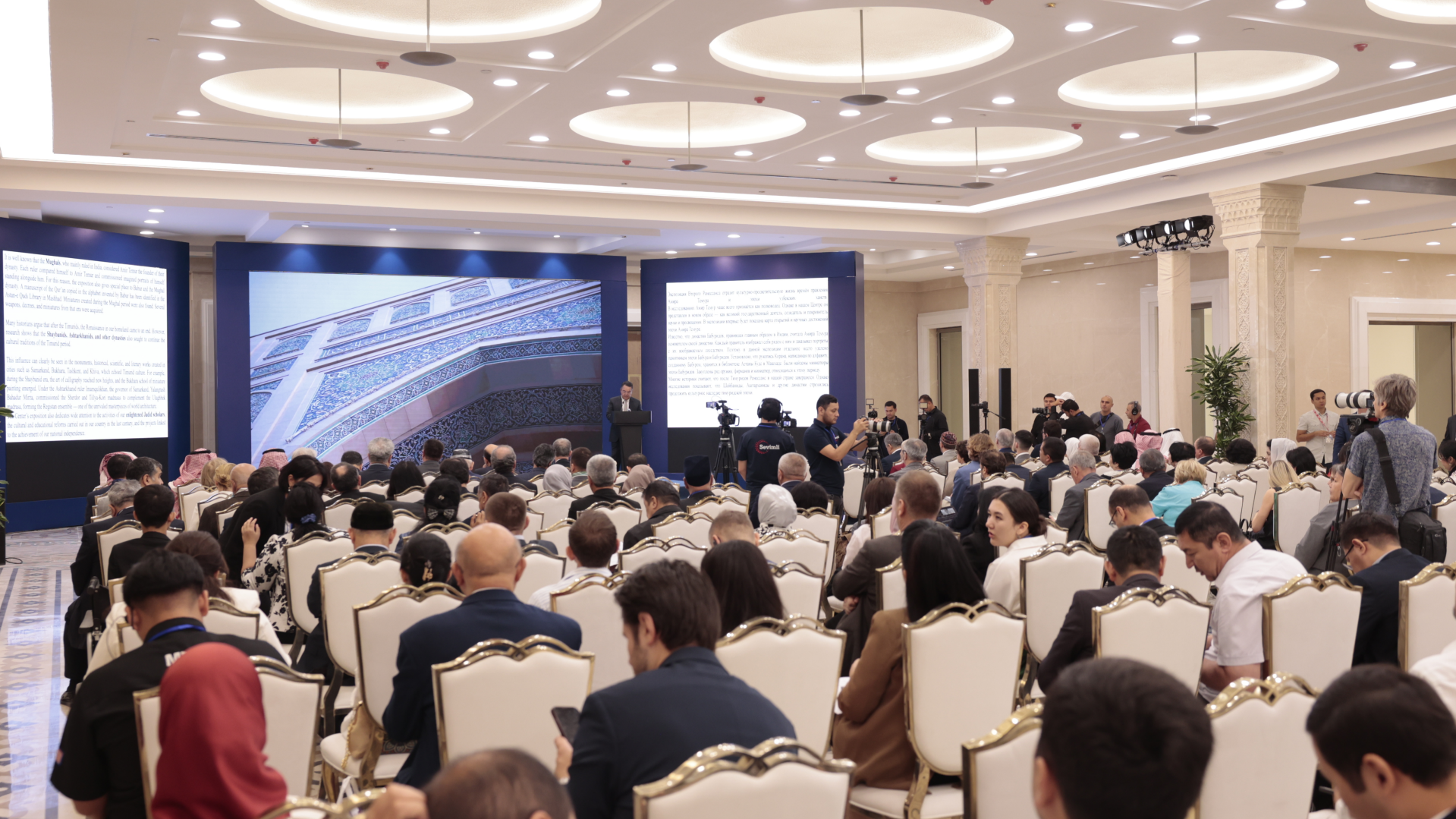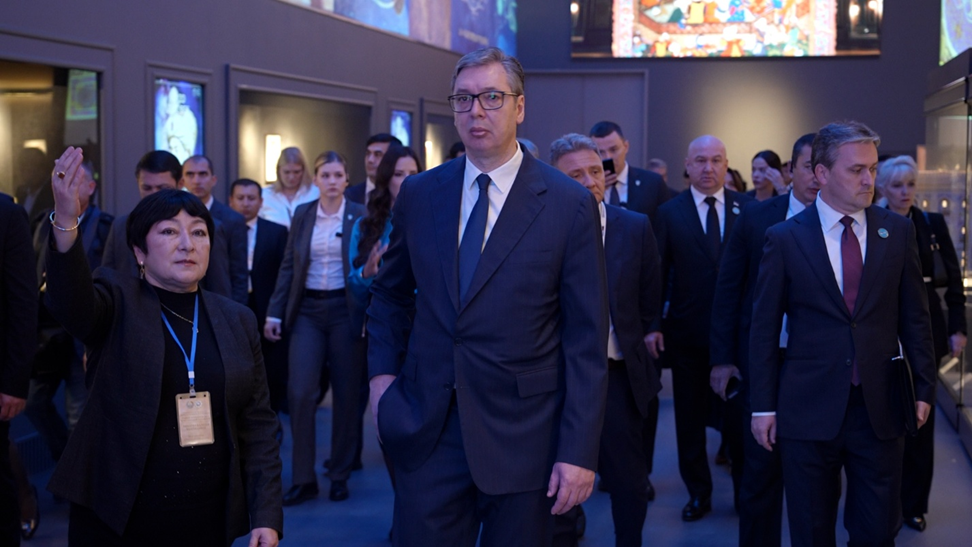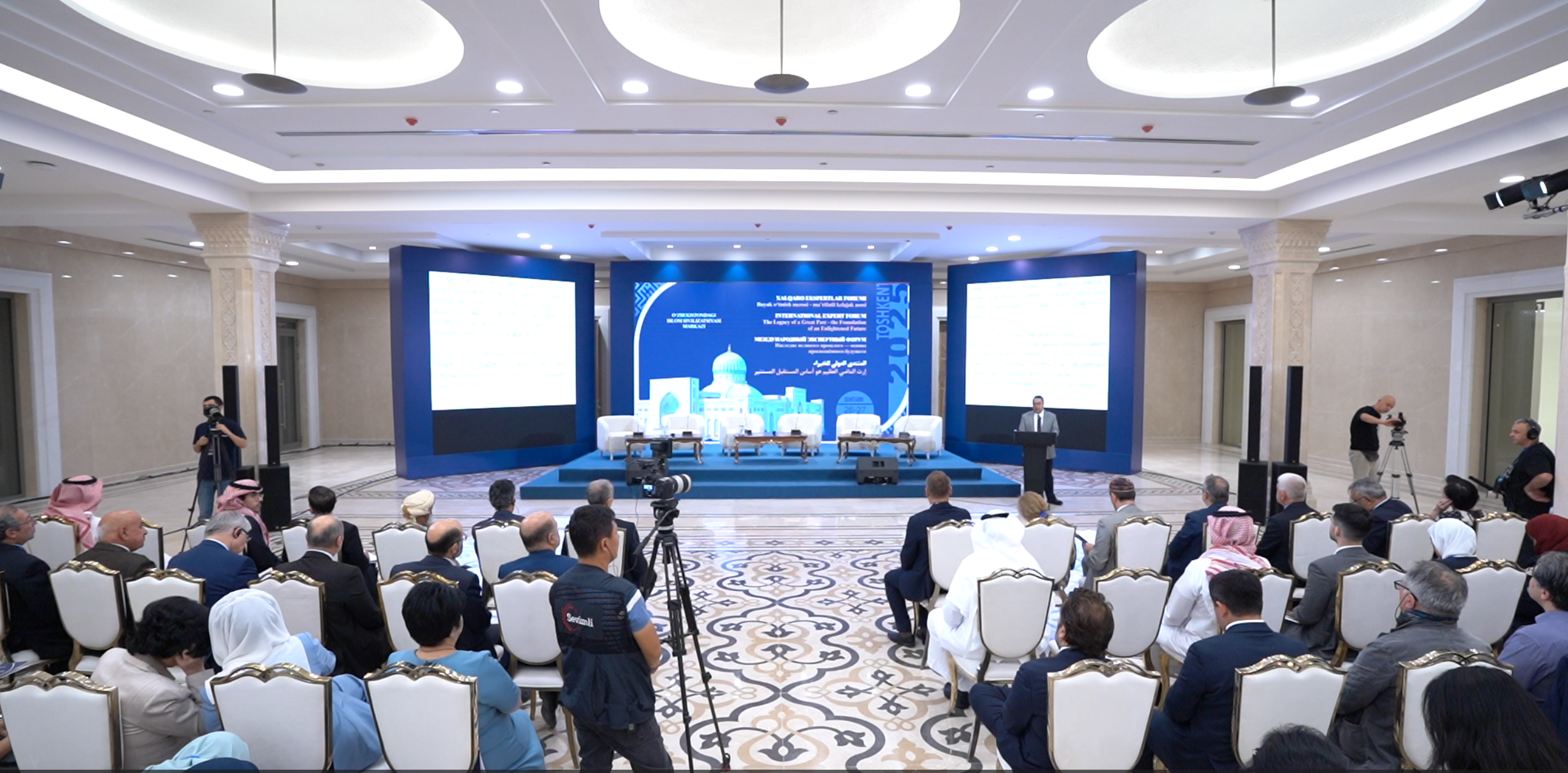PangeaGlobe: The Academy of Sciences of Uzbekistan – Towards a National Renaissance

One of the world’s most prestigious media organizations, PangeaGlobe, has published an article in its online edition highlighting the fruitful cooperation between the Academy of Sciences of Uzbekistan and the Islamic Civilization Center in Uzbekistan. Known for producing top-tier content based on insights from business leaders, government officials, and experts, PangeaGlobe is renowned for its ability to effectively communicate institutional ideas to a global audience. Through its in-depth articles, it provides valuable perspectives and practical information, serving as a bridge between major corporations, media outlets, and intellectual communities across various fields and regions. Its focus on Uzbekistan demonstrates the growing international recognition of the country’s achievements among the world’s intellectual elite.
 The Islamic Civilization Center in Uzbekistan, under the Cabinet of Ministers of the Republic of Uzbekistan and in collaboration with the Academy of Sciences, is becoming an essential hub for advancing the nation’s scientific and spiritual potential a vibrant space for culture, education, and research.
The Islamic Civilization Center in Uzbekistan, under the Cabinet of Ministers of the Republic of Uzbekistan and in collaboration with the Academy of Sciences, is becoming an essential hub for advancing the nation’s scientific and spiritual potential a vibrant space for culture, education, and research.
In Tashkent, where ancient manuscripts are preserved alongside modern laboratories, a new cultural chapter of our rich history is being written. In this process, the Academy of Sciences plays a decisive role. Having successfully withstood the test of time since its establishment in 1943, the Academy today stands as a vital institution shaping a future where science and spiritual heritage evolve in harmony.
As noted by Shavkat Ayupov, mathematician and Hero of Uzbekistan, who serves as President of the Academy of Sciences, the recent years have marked a period of profound transformation:
“Since 2017, we have witnessed a rebirth of both scientific and spiritual development. The Academy of Sciences has taken on a pivotal role in this new era.”
The Islamic Civilization Center
One of the most remarkable aspects of this new phase is the Academy’s active participation in establishing the Islamic Civilization Center in Uzbekistan. This Center is not merely a museum or a religious archive it is an expansive platform combining scientific research, education, and cultural diplomacy. As reflected in the Academy’s mission, this project not only advances scholarship but also strengthens Uzbekistan’s position within the global intellectual and cultural landscape.
The partnership between the two institutions carries both foundational and strategic significance. The Academy contributes to shaping the Center as a scholarly institution, actively engaging in developing exhibition concepts and defining scientific priorities.
A new mission
This collaboration illustrates the Academy’s ongoing transformation. The institution is evolving from a traditional academic body into a driving force for national progress. This new phase of scientific and cultural renaissance has been made possible thanks to the visionary support of President Shavkat Mirziyoyev, whose reforms since 2017 have catalyzed large-scale renewal across both intellectual and spiritual spheres.
Today, the Academy’s work advances in two parallel directions: alongside its core research fields, it now conducts applied studies aimed at solving urgent societal challenges from energy security and public health to environmental sustainability. At the same time, active efforts are underway to nurture a new generation of scientists, expand international collaboration, and integrate digital technologies into scientific research.
Honoring the Islamic Heritage
This transformative spirit is fully embodied in the activities of the Islamic Civilization Center. Its main goal is to present Islam not merely as a religion, but as a historical force of science, tolerance, and progress. The Center explores the contributions of great thinkers such as Muhammad al-Khwarizmi, Ahmad al-Farghani, Ibn Sina, and Abu Rayhan al-Biruni to the global development of medicine, astronomy, mathematics, and philosophy. The Academy of Sciences, as a key partner, ensures that this heritage is studied not only with reverence but also with scholarly rigor and precision.
The Center’s activities encompass both academic and cultural dimensions. Its interdisciplinary research unites historians, philologists, theologians, and natural scientists. Educational programs include offline and online courses in multiple languages, while the museum halls display artifacts from across the Islamic world including manuscripts sourced from the Sotheby’s and Christie’s collections. The Qur’an Hall stands as the heart of the Center, where the sacred Uthman Qur’an — one of the most ancient and revered manuscripts of the Muslim world is preserved.
International collaboration
With the support of the Academy of Sciences, the Islamic Civilization Center has already gained global recognition, establishing partnerships with leading institutions in Egypt, Malaysia, Morocco, and Saudi Arabia. Memorandums of Understanding have been signed, and cooperation with UNESCO and other prominent organizations has been initiated.
“The Center is becoming an important platform that unites scholars, researchers, and cultural institutions worldwide to explore the essence of Islamic civilization,” notes Shavkat Ayupov.
Dialogue for the future
Beyond exhibitions and international agreements, the Center strives to foster dialogue among representatives of different religions, cultures, and generations. As Uzbekistan lays the foundation for the Third Renaissance, the Academy of Sciences and the Islamic Civilization Center are not only preserving the legacy of the past but also shaping a future that once again positions our homeland at the crossroads of science and civilization.
As the head of the Academy emphasized, this very process is vividly reflected in the following words of President Shavkat Mirziyoyev:
“Anyone who visits the Center will vividly see our history and realize that Islam is, above all, a religion of peace, progress, and tolerance and will truly appreciate the immense contribution of the Uzbek people to the development of world civilization.”
Most read

Over 100 experts from more than 20 countries of the world are in Tashkent!

President of Serbia Aleksandar Vučić visited the Islamic Civilization Center in Uzbekistan

The Center for Islamic Civilization – a global platform leading towards enlightenment











